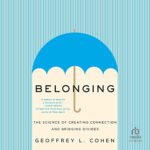Flashcards feel to me like a research sweet-spot.
In the first place: for the most part, students believe that they help — and are even willing to make them!
In the second place: flashcards should help. After all, flashcards promote retrieval practice. And as you know, research shows that retrieval practice really helps students learn.
So, if we can find specific research about flashcards, it should be especially useful in our work.
It would be even better if one of the researchers were Mark McDaniel — who co-authored make it stick: one of the great books on memory research for teachers.
If you agree with me on these points, I’ve got some good news for you today!
Starting with Questions
Far and away the most common flashcard question I hear is: “does it matter if students make the flashcards themselves?”
The logic behind this question makes sense. When students think about the material in order to make good flashcards, then that thought might promote learning.
In other words: flashcard making isn’t just the bad kind of “active learning” (students are BUSY!) but the good kind of “active learning” (students are THINKING!).
I have two doubts about this thought process.
First: students might not know enough to make good flashcards.
If their cards prompt them to recall relatively unimportant ideas and processes, then the subsequent retrieval practice won’t really help.
Second: making flashcards takes time.
If students have access to good flashcards — ones that highlight the core concepts, procedures, and facts — then studying with those cards will (perhaps) be more efficient than taking time to make their own.
Two other questions also suggest themselves:
What kind of questions should be on the flashcards?
Most students make detail flashcards. That is: flashcards that focus on facts, definitions, dates, and so forth.
They might also — or instead — make “conceptual” flashcards. That is: flashcards that combine details in compare/contrast patterns, or process steps.*
Question #3:
Do flashcards help some students more than others?
The good news: a recent study explores all those questions.
The First Question
Researchers started with a straightforward experiment. They had students read textbook passages – one about biological anthropology, the other about geology – and then study for a quiz.
The students were divided into four groups, based on how they studied:
Group A studied however they chose.
Group B received 12 flashcards prepared by the textbook makers.
Group C made their own 12 flashcards. They didn’t get any instructions about them.
Group D made their own 12 flashcards. They did get special instructions: “include 4 ‘conceptual’ questions” – that is, questions that compare/contrast, or that highlight several steps in a process.
Let’s return to the first question I asked above: did the students who made their own flashcards learn more than those who studied with pre-made flashcards?
Nope.
That is: students in Groups C & D (who made their own cards) did NOT learn more than those in Group B (who received pre-made flashcards).
Even worse: they DID spend more time.
So, at least in this experiment, asking students to make their own flashcards just isn’t very efficient. They DO spend more time, but DON’T learn more. A bad combination.
Okay, but what about the second question I asked above?
Did the students who made “conceptual” flashcards learn more than those who got no special instructions?
Again, Nope.
Students in Group C — who got no special instructions — mostly made “detail” flashcards. Students in Group D — who were instructed to make 4 “conceptual” flashcards – basically followed those instructions; they made 4 “conceptual” and 8 detail flashcards.
But: both groups spent the same amount of time, and got the same score on the quiz.
Digging Deeper
This research team had hypothesized that the “conceptual” flashcards would benefit learning, and were therefore surprised by the results of this first experiment.
However, they quickly saw a plausible explanation.
C-Group students – who got no instructions – made 12 flashcards. On average, 10 of them were detail flashcards, and the other 2 were “conceptual.”
D-Group students – instructed to make 4 conceptual flashcards – did so: 8 detail cards and 4 “concept” cards.
So you can see, not much of a difference there.
In their next experiment, these researchers doubled down on these two different strategies.
Two new groups of students read the same two passages.
Group E received detail-only flashcards.
Group F received “conceptual”-only flashcards.
Now is there a difference?
By George I think they’ve got it.
Sure enough, in high enough percentages, “conceptual” flashcards do help students learn more.
Now We’re Getting Somewhere
Based on these first two experiments, I think we have some useful answers to our initial questions:
First: at least so far, we don’t have good evidence that students learn more when they make their own flashcards. Alas, this strategy seems inefficient, based on experiment #1.
Second: conceptual flashcards do help students more than detail flashcards, as long as there are enough of them.
I do think this second conclusion requires further nuance.
In the first place, some disciplines really do require lots of detail knowledge. When I studied Czech, I had (literally) HUNDREDS of vocabulary flashcards. Other fields might require a similarly detail-heavy flashcard deck.
In the second place, I do think K-12 students might need detail flashcards more than college students. After all, college students already know more details than younger students do – especially at the highly selective college where this study was performed.
Finally, the distinction between “detail” and “conceptual” might be overdrawn. Here’s a technique I’ve used in my own work.
Step 1: ask a student to draw two vocabulary flashcards, and to define those words.
In my English class, the student might define the words “protagonist” and “sympathetic.”
Step 2: ask the student to make a connection between the two words.
Now the student might say: “Well, a protagonist is typically a sympathetic character – like Janie Mae Crawford. But not always: Macbeth certainly is the protagonist, and certainly isn’t a sympathetic character.”
With this technique, two “detail” flashcards combine to require “conceptual” thinking – at least as defined by the researchers.
TL;DR
As long as we allow for nuance, and the possibility that future research will invite us to rethink these conclusions, this study suggests:
A: Students don’t benefit from making their own flashcards – as long as we provide them with good ones, and
B: Students DO benefit from flashcards that ask them to combine and organize information, not simply recall free-standing facts.
These suggestions – and others that have good research support – give us useful pointers to pass along to our students.
A Final Note:
Eagle-eyed readers will have noticed that I didn’t answer my third question: “do flashcards benefit some students more than others?”
This study does point to an answer, but … I don’t fully understand it.
In brief, “high structure-building” students don’t benefit as much from conceptual flashcards, because they already do better than “low structure-bulding” students – who DO benefit from conceptual flashcards.
Sadly, I don’t understand exactly what “high and low structure-building” means here. Those words sound like a proxy for “high scoring” and “low scoring,” but not exactly. Rather than pretend I know, I’m simply fessing up that there’s an extra variable here.
If you figure it out, please let me know!
* The authors of the study I’m describing acknowledge that this definition of “conceptual” is incomplete. They’re using that word as a handy shorthand for “flashcards that go beyond single details.” In this blog post, I put the word “conceptual” in quotation marks to highlight the narrow specificity of their definition.
Lin, C., McDaniel, M. A., & Miyatsu, T. (2018). Effects of flashcards on learning authentic materials: The role of detailed versus conceptual flashcards and individual differences in structure-building ability. Journal of applied research in memory and cognition, 7(4), 529-539.





This is really interesting, thanks. I’m not sure of the difference between conceptual and detailed flashcards, but it’s obviously very important! Can you provide an example or more information?
Thank you for your comment.
The researchers acknowledge that the difference between “factual” and “conceptual” is a bit tricky. As noted above, I think “factual” flash cards focus on 1 detail or definition. “Conceptual” flashcards bring several facts together into a process or combination.
At the end of the post, I note that “factual” flashcards could be used “conceptually” if students have to connect the ideas in them.
If you’d like a further discussion of this important/difficult question, click the link to find the research study itself.
Cheers
You state: In brief, “high structure-building” students don’t benefit as much from conceptual flashcards, because they already do better than “low structure-bulding” students – who DO benefit from conceptual flashcards.
Years ago I read a study about graphing calculators and how they are an asset for students just learning calculus, but not so much for student who already had a deep understanding. It seemed that the novice students needed the extra scaffolding, but the accomplished students did not. Based on this I would hunch that the students that are “high structure building students have a more developed visual memory and hence so not need the extra visual drill as those that struggle with memory.
I can’t find a ny research to support in a quick review, but thought I would throw out my thoughts to see if you know of anything .
Thanks a lot for the post. It shred light on the use of them. I think that the term ‘”high and low structure-building” goes to the idea of students with a more developed high order thinking skills, and not just students who can understand the info. But those who can manipulate in some way that info, as for example can think of making associations,etc as well. Just thinking.
Could “high structure-building” mean students with an already well-developed schema?
I initially thought so, but — for reasons I can’t remember so many months later — I ended up thinking not. But: I’m open to persuasion!
Pingback: Transforming Notes To Flashcards: Effective Study Techniques For Better Retention - 2024
Pingback: How to Use Command Terms Effectively in IB Exams - IB | ++tutors